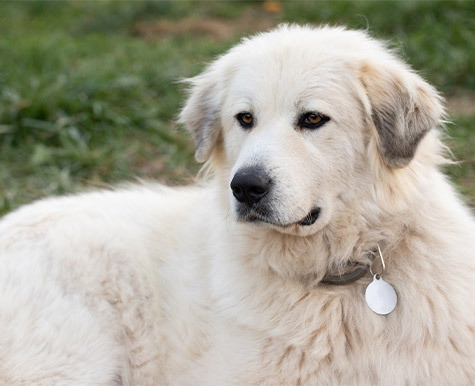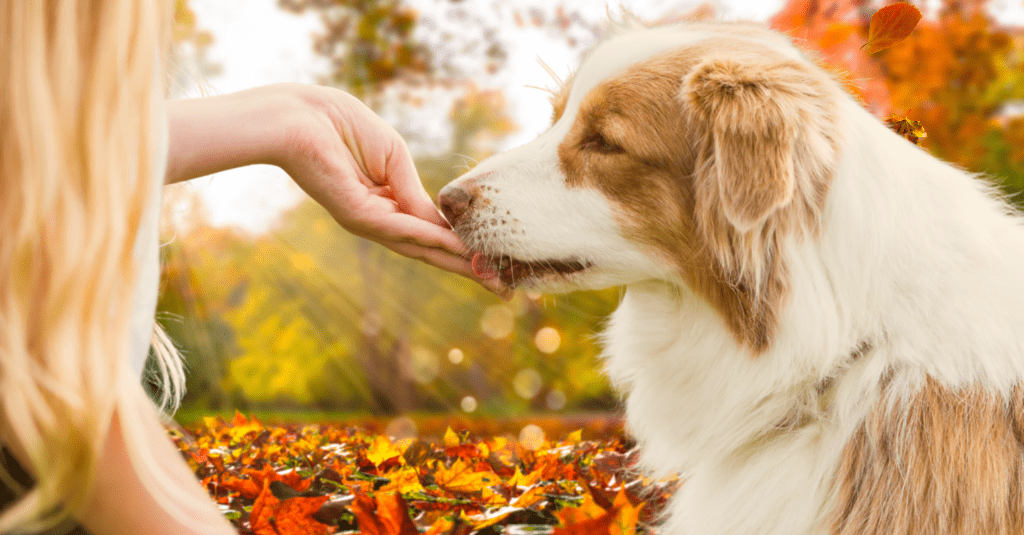






Great Pyrenees
 Overview
Overview
Overview of Great Pyrenees
The Great Pyrenees are eye-catching majestic giants that look just like polar bears! Often tipping the scales at over 100 lbs, these are some of the largest working dogs around. Also known as the Great Pyrenean Mountain Dog, their name comes from the French Pyrenees mountain range, where they were bred to guard and protect sheep from wild predators. They are believed to have originated in Central Asia and later made their way into Europe around 5000 years ago. In the 17th century, the French elite coveted the Great Pyrenees as protectors of their estate, and in 1675, King Louis XIV named them the royal dog of France! Their thick weatherproof coat tends to only come in one color: pure white, though, sometimes they have light markings of other colors on their head and body. A fun fact about the Great Pyrenees Dog is that they naturally have a double dewclaw on each of their hind legs to help them climb steep mountainsides to protect their herd. One of the only other breeds with functional double dewclaws is the Beauceron - another ancient herding breed in France.
Common Health Conditions & Recommendations for Great Pyrenees
Hip dysplasia in dogs:
Is an abnormal formation of the hip socket which may cause arthritis and joint discomfort. Although it may occur in any breed, giant breeds like the Great Pyrenees may be especially prone to this genetic condition.
Recommendations for Hip dysplasia in dogs in Great Pyrenees :
Common Health Conditions & Recommendations for Great Pyrenees
Osteosarcoma in dogs:
Is a condition that large and giant breeds may be more prone to developing later in life. Generally, the first signs and symptoms of bone cancer are limb lameness or discomfort.
Recommendations for Osteosarcoma in dogs in Great Pyrenees :
Common Health Conditions & Recommendations for Great Pyrenees
Heart Murmur in dogs:
Sub aortic stenosis (SAS) is an inherited heart condition that the Great Pyrenees dog may be susceptible to and is characterized by a blockage (stenosis) or ‘lesion’ close to an aortic valve which may express itself as a heart murmur. This can be fatal in severe cases.
Recommendations for Heart Murmur in dogs in Great Pyrenees :
 Personality
Personality

The Great Pyrenees is an independent, easygoing dog that can be difficult to train, so start early. They were bred to work, so if you want a dog that will do tricks and hang out all day, this is probably not the dog for you. Adults require several hours of daily exercise, so they would be happiest amongst working families on homesteads and pastures. Naturally nocturnal, don't be surprised if your Great Pyrenees wants to nap during the day and guard at night. They are heavy shedders, so having a dedicated grooming routine will serve you well with these majestic giants! So, if you want a sweet-natured working dog who is excellent with children and naturally protective, the a Great Pyrenees puppy is sure to win you over!





 USD
USD
 Canadian Dollars
Canadian Dollars


